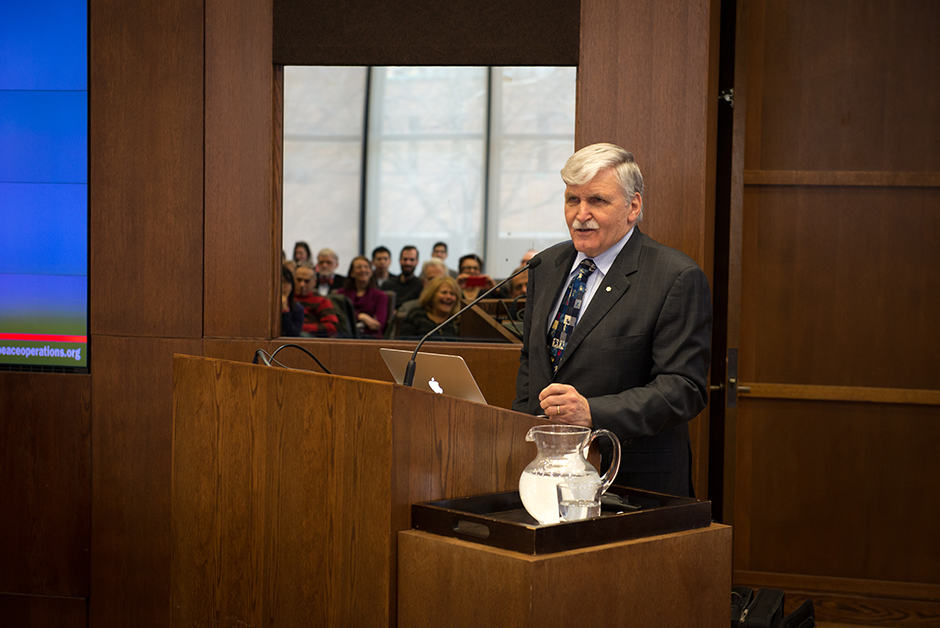With term paper due dates right around the corner and exam season immediately after, the ninth annual Massey Grand Rounds (MGR) symposium last week brought to our attention a topic that is currently extremely relevant to all our lives: stress.
Titled “The Science of Stress,” this year’s conference aimed to specifically highlight the scientific basis for, and approach to, stress and anxiety. In addition, talks also included discussions on how to minimize the stigma associated with mental health problems, as well as the state of anxiety within the U of T student body.
The symposium opened with a keynote address from retired Lieutenant General, senator, and author of Shake Hands with the Devil: The Failure of Humanity in Rwanda, Roméo Dallaire. He discussed his own experience of living with post-traumatic stress disorder (PTSD) following the witness of the 1994 Rwandan genocide. Dallaire’s lecture was also available for livestream through the Munk School of Global Affairs website.
At the heart of Dallaire’s talk was his frustration with mental health stigma among the veteran community. He explained that subtle changes in language can help overcome this stigma. These changes can also encourage those suffering from PTSD following the witnessing of violence and conflict-related atrocities to seek the help that they need.
“I will emphasize that I am not a person with a disease, nor am I a person with a sickness, I am a person with an injury,” Dallaire said, explaining how comparing his PTSD to other types of injuries acquired on the field can help military personnel accept that they are in need of professional care as much as anyone else is. “It is only when we articulated that it was an operation stress injury that then the doors opened,” Dallaire continued, adding, “And then the argument was defendable in front of them — that this was an honourable injury.”
With the powerpoint slides behind him reading “Injured but not down, disabled but capable,” Dallaire went on to emphasize that in addition to a shift away from stigma, those suffering from the honourable injuries of PTSD and anxiety are in need of more regular peer support in order to help take the steps they need to find the professional care required to function in their day-to-day lives. He also emphasized that institutions who place individuals in stress-inducing situations should be responsible for providing this.
“The peer support is the instrument to guarantee the continuum of an individual who will go and get that professional help,” Dallaire said, adding, “There have been enormous amounts of problems with doing that, again [for] people particularly from a Darwinian organization, that is very visible, like military or police and so on… even peers in the classrooms.”
“It is preposterous not to recognize that your injury needs the same sense of urgency and support as if you had busted your finger or lost an arm,” Dallaire said, adding, “They’re on the same scale.”
The symposium continued in the Massey College building with plenary talks from Dr. Anthony Feinstein, professor at the Department of Psychiatry, and Dr. Evelyn K. Lambe, professor at the Department of Physiology, both at the University of Toronto.
After a ten-minute mindfulness exercise, in which everyone who attended participated, the symposium continued with a panel on stress mechanisms and management in student life. The panel included talks from Jannine Robb, Executive Director of Health & Wellness at U of T, and Dr. Benjamin Goldstein, an associate professor at the Department of Psychiatry at U of T.


